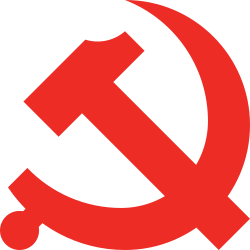| 中央精神文明建设指导委员会 | |
 | |
| Agency overview | |
|---|---|
| Formed | 21 April 1997 |
| Headquarters | Beijing |
| Agency executives | |
| Parent agency | Central Committee of the Chinese Communist Party |
| Child agency | |
| Website | www |
| Central Guidance Commission on Building Spiritual Civilization | |||||||
|---|---|---|---|---|---|---|---|
| Simplified Chinese | 中央精神文明建设指导委员会 | ||||||
| Traditional Chinese | 中央精神文明建設指導委員會 | ||||||
| |||||||
| Commonly abbreviated as | |||||||
| Chinese | 中央文明委 | ||||||
| |||||||
The Central Guidance Commission on Building Spiritual Civilization (CGCBSC),officially known as the Central Commission for Guiding Cultural and Ethical Progress, [1] is a commission of the Central Committee of the Chinese Communist Party. It is tasked with educational efforts to build a "spiritual civilization" (Jingshen Wenming) based on socialism and the goal to build a socialist harmonious society,according to the official Chinese Communist Party (CCP) policy. [2]
Contents
Currently,Cai Qi serves as chairman,and Li Shulei is the vice-chair.
